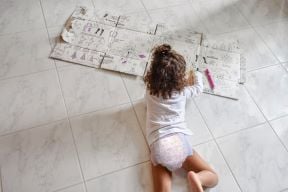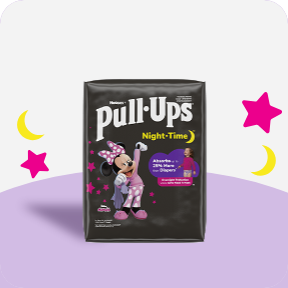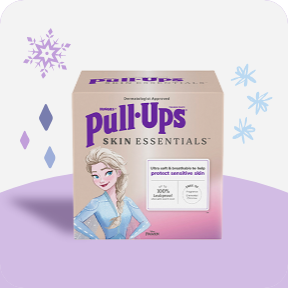Your Toddler’s Milestones
It seems like it was just yesterday you held your newborn baby in your arms and marveled at this tiny human who you now have the pleasure and privilege of raising. Such a big job; such a responsibility! How will you know you’re doing the right thing at the right time along the way?
Don’t worry, parents, we’ve got you! From well-meaning friends and family members to your baby’s healthcare providers and daycare teachers, there are plenty of people to help you check in on how well your tike is striving and thriving.Understanding Toddler Milestones
Toddler milestones, set by experts at organizations like the American Academy of Pediatrics and the Centers for Disease Control & Prevention, can be a guide as to what some—but not always all—children can do by certain ages. Milestones represent activities or actions that about three-quarters of babies and toddlers can do by particular ages.
These are not hard and fast rules but rather guidelines to suggest that by this or that age, about 75% of toddlers—but not necessarily all—may be able to walk, talk and use a vocabulary of more than 50 words, or direct play such as making silly faces and interacting with others, for example.
Toddler Developmental Milestones
Developmental Milestones: 1 Year Old
Twelve months have passed by fast, and during this time it’s likely that your tiny tot can now:
- Know their name and respond when you say it
- Listen and look to where sounds, such as your voice, is coming from
- Look where you may be pointing, or reach toward toys or foods they want while pointing
- Actively babble as in conversation with themselves or others even if it’s all gibberish
- Talk and babble with intonation mimicking spoken language
- Take turns talking, even if it’s not actual words
- Say a few words such as “mama” or “ball” as talking typically begins around 12 months but may not be actual words before 18 months
- Wave hello and goodbye
Developmental Milestones: 2 Years Old
Wow, baby’s not a baby anymore and they’re busy exploring their world. Between ages 1 and 2, many children can:
- Use 50-100 words and learn a new word every week between ages 18 and 24 months
- Say short sentences, such as “let’s go” or “all gone”
- Talk clearly enough that most adults can understand them
- Follow simple commands, like “help me put your coat on” or “put your cup on the table”
- Advance from crawling to walking
- Get a toy or item from another room on their own
- Show you items they discover such as a book they enjoy
- Point and express interest in an item that’s out of reach
- Get an object, like a toy or blankie, from another room or area when asked
- Follow a simple command like “please give me your cup”
- Learn the names of their body parts
- Name objects and items in picture books, in their home and world, such as dog or book
- Engage in pretend play, such as cooking or block building
Motivate Your Toddler on their Developmental Milestones
Parents, you are your child’s first and best teacher and whether you’re rocking while reading a book together or discovering their world on a daily walk through your neighborhood, the simple activities of everyday life can be a teaching moment. If you’re out on a walk, point out objects like trees, cars, mailboxes, buildings, houses, and so forth. As you pass by ordinary objects, say their names with enthusiasm—teach your tike it’s fun to talk! Your enthusiasm for expressing what you’re experiencing will motivate baby to do the same.
You can do a lot to promote their learning and brain development from birth. Express excitement when your toddler reaches speech milestones—remember, “ba” may mean “ball” and you can help make those neural connections, when you say, “Ball? Yes, that’s a ball!” Don’t forget to clap with excitement—your toddler is turning in accomplishments after accomplishments!
Speak the names of objects you see in stores, on walks or in your home. Pause to see if they make any sound or tries to repeat what they heard. Say the names of items as you pause and then hand them to your toddler—say “cup” and if your mighty tike tries to repeat the sound, say, “Yes, cup!”
When to Seek Help with Your Child’s Developmental Milestones
Parents, no one knows your little one like you do. Your toddler is busy making huge leaps and bounds with changes in their physical, social and communication abilities in the first two years of their life. Use milestones as a guideline—not hard or fast rules. Still, you know your child best—and if you’re watching them grow older without expressing interest in social interaction such as playing, or if they’re not communicating with you or others such as singing, silly babbling or talking, don’t wait to get support and help from your baby’s pediatrician or from the specialists they may recommend provide support for your child.










